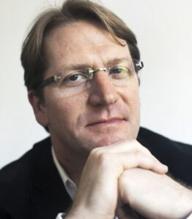
Something went Wrong
Try entering your email again or contact us at support@qfi.org
Try entering your email again or contact us at support@qfi.org
You’ll receive an email with a confirmation link soon.
Apr 29, 2024
By Fabrice Jaumont
As a language educator and enthusiast, I recently had the privilege of participating in QFI’s symposium focused on Arabic language education within the European context. This event highlighted the urgent need for a bilingual revolution, specifically, the recognition of Arabic as a global language. This paradigm shift is crucial in our globally interconnected society, given the significant implications it bears for language education.
Arabic education in countries like the US and France, which I know well, has been traditionally deficient, particularly for students with prior exposure to the language. As such, expanding Arabic education to include bilingual curriculums in primary schools is imperative, particularly in Europe. This expansion, coupled with high-quality instruction, will foster an appreciation of the Arabic-speaking world’s cultures and communities.
The symposium presented a unique platform to address pressing issues such as teacher supply, curriculum development, and assessment in Arabic language education. It illuminated the necessity of an inclusive, diverse, and effective approach to teaching Arabic, which would elevate the language’s global status and enrich our understanding of the Arab world.
Monolingualism, often termed the “illiteracy of the 21st century,” is prevalent in many western societies, including France and the US. This prompts the need for a bilingual revolution that encourages cultural appreciation, promotes linguistic heritage, and facilitates open dialogue between parents and schools.
A future-oriented approach to language education requires curricula that genuinely represent the diversity of Arab cultures and consciously deconstruct stereotypes. This necessitates acknowledging the sociolinguistic realities of Arabic-speaking communities and addressing the stigmatization of Arabic in our polarized society, whether in Europe or elsewhere.
Moreover, the symposium stressed the importance of representation and networking in language education in the EU. It advocated for broader discussions about non-European language teaching at the policy level and the cultivation of interconnected classrooms to address issues like Arabic ghettoization. The scarcity of Arabic teachers requires urgent action, with a demand for alternative pathways and certifications to breed a new generation of qualified educators.
In recent decades, Arabic has made substantial strides as a global language, with its study at various levels enabling a deeper understanding of Arabic-speaking cultures. Despite this progress, challenges persist. An essential task lies in constructing an ecosystem to boost Arabic’s global standing. This involves resolving existential questions such as defining “Arabic,” deciding on the forms to be taught, and determining Arabic’s role in the 21st century.
Creating new cadres of Arabic teachers, professionally prepared to address these questions and assist in building a vibrant Arabic ecosystem, is a challenge we must overcome. By championing Arabic as a global language and embracing bilingualism, we can cultivate respect, understanding, and tolerance while unlocking potential for personal and societal growth.
In conclusion, the symposium underscored the significance of embracing the bilingual revolution and recognizing Arabic as a global language. It was a stepping stone towards a more connected and multilingual world, where languages are celebrated rather than merely learned. The journey is long, but the rewards are worth it.
Fabrice Jaumont is a French-born author and educator best known for his advocacy for dual-language bilingual education around the world. He is the author of several books translated in multiple languages, including The Bilingual Revolution: The Future of Education is in Two Languages.
More information:

